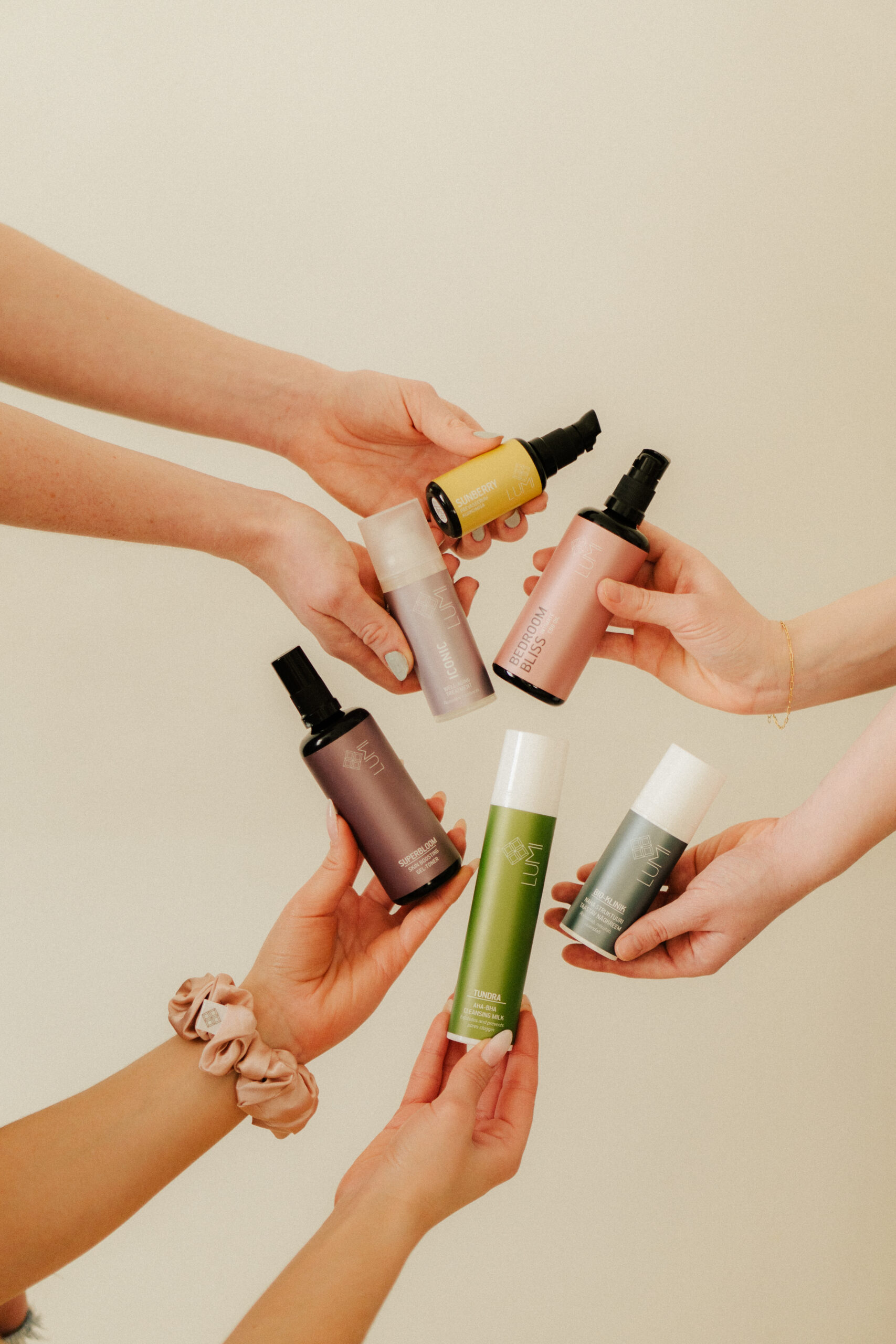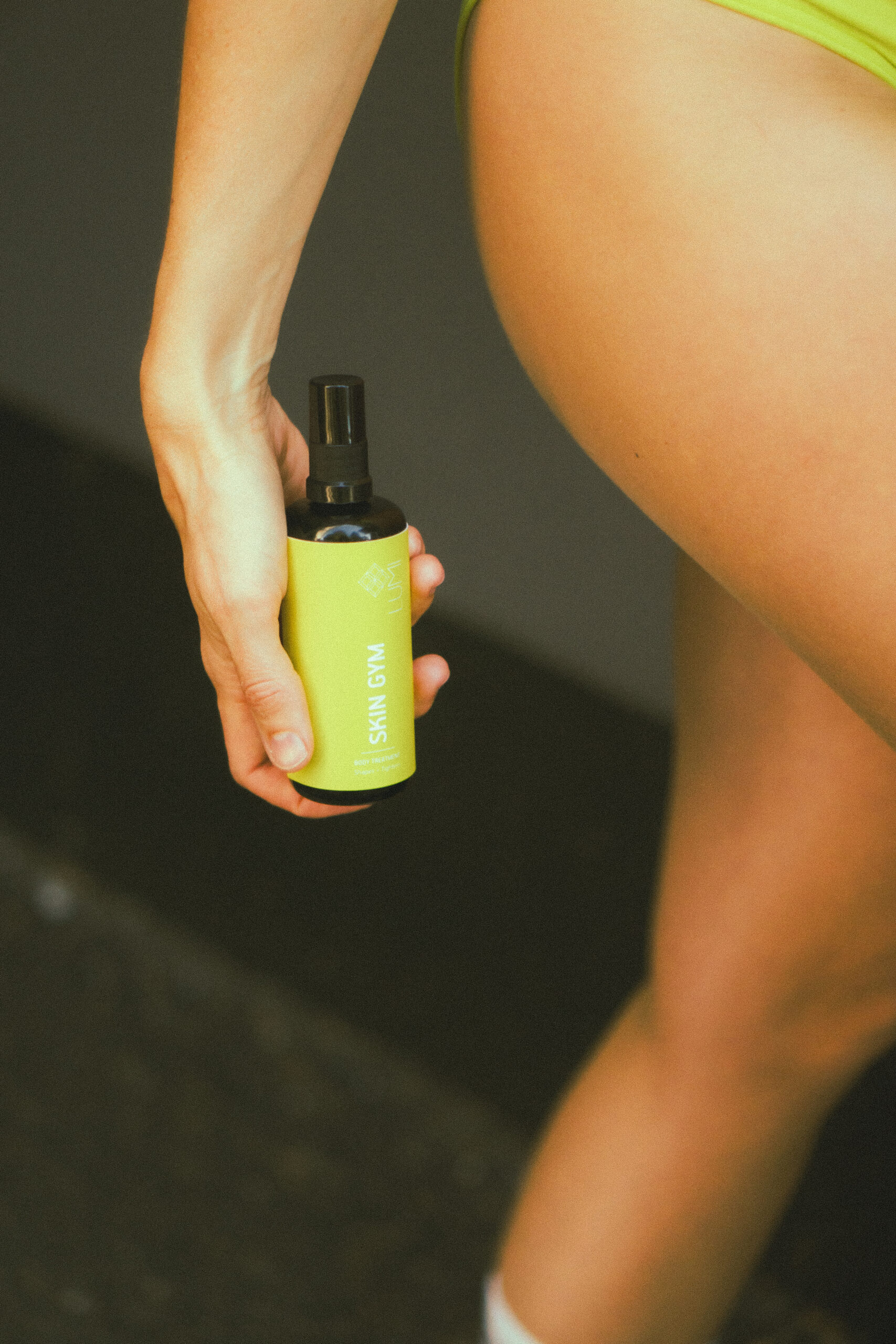ACNE SKINCARE INGREDIENTS TO AVOID!
Acne is a complex condition. Often, it can seem a chronic affliction that simply nothing can shift! For so many of us who were promised that acne was simply a part of growing up, it can be disheartening to suffer on with symptoms well into our 30s and even beyond.
It’s natural, then, that searching for acne skincare products can become something of an obsession. Every new product and slogan promises a solution, and everything seems worth a try. Unfortunately, however, advertising slogans cannot be trusted, and it’s important to delve into the composition of products and understand what effect they might have on your skin. You may be doing more harm than good!
Today, we give an overview of the most common acne skincare ingredients that you should avoid, as well as giving you some perfect recommendations for skin-healthy alternatives!
Acne sufferers should be sure to exclude these 5 things from their care routines:
1. Products containing salicylic acid.
One of the most common recommendations for acne-prone skin is to use products containing salicylic acid. However, the use of synthetic salicylic acid in certain cosmetic products has largely been banned due to its endocrine-disrupting effects. Synthetic salicylic acid is still allowed to be used in very small amounts as a preservative in some products, though it is prohibited completely in products intended for children under 3. The allowed percentage of salicylic acid is higher in washable products. You can find salicylic acid in a product’s International Nomenclature Cosmetic Ingredient (INCI) list under its common name Salicylic Acid.
Try instead: LUMI’s Tundra line, which contains willow bark extract, a natural alternative to synthetic salicylic acid that does not have the same harmful effects. Its INCI name is Salix Nigra Bark Extract. It is a strong antioxidant and has skin-soothing, sebum-reducing and mattifying properties.
2. SLS washing gels and excessive face cleansing.
We have spoken about this many times before, but it’s such an important point that it always bears repeating – foaming face washes and over-cleansing the skin should be left in the past! Excessive cleansing makes skin more sensitive and causes increased sebum production.
Avoid products that contain sodium lauryl sulfate (SLS) in their INCI lists. SLS has been shown to lead to extreme drying of skin and increased pore clogging over time. Whilst removing makeup, dirt, and sebum from the surface of the skin, SLS also washes away the corneocytes between cells, which act in a similar way to cement between bricks. Just like a brick wall with no cement, skin without corneocytes loses much of its rigidity and protective capacity. In general, skin (especially delicate facial skin) does not want to come into contact with any surfactants, which makes it extremely difficult to find a cleansing product on the market today that is actually good for the skin. We have been living in an era of skin over-purification for decades!
Try instead: LUMI Cleansing Milk can be used as a cleansing foam, either during a shower or as part of a morning/evening routine. Oil-based cleansing milks are perfect for removing makeup and dirt from the face whilst also maintaining the natural balance and protective qualities of skin. If you’re still unconvinced, try LUMI cleansing milksfor a month and see what your skin says! You will no doubt find yourself left with un-reddened, balanced skin that has found its sense of comfort once more!
3. Fragrances
3000 different substances can be hidden behind the INCI name ‘Fragrance’. You can therefore never be sure which of these substances you are putting on your skin. Both synthetic and natural fragrances increase the risk of allergic reactions to products. Additionally, fragrances are often labelled with the names ‘Aroma’ or ‘Parfum’, the most common components of which include linalool, limonene, farnesol, and geranium. In the best case scenario, you may get away with irritation from these substances; in the worst case, they may disrupt the proper functioning of your endocrine system. When applying essential oils such as these to the skin, one must also be aware of their interaction with the sun. Occasionally, phototoxic reactions may occur.
Fragrances can also disrupt the skin’s microbiome, which can be particularly unhelpful for those already suffering with acne. A balanced microbiome can better limit the reproduction of bad bacteria and thus significantly ease acne symptoms.
Try instead: LUMI creams that never contain added fragrances. Our creams have a natural scent that you can trust. Synthetic fragrances can linger in products for up to 5 years, and can be used to mask other ingredients and confuse the user into believing things are fresher and healthier than they are. LUMI’s natural creams are quite the opposite – they smell fresh because they are fresh! You can read more about the natural scents of LUMI products here.
4. Silicones.
Silicones are not inherently pore-clogging, but the occlusive layer they create locks acne-causing sebum and acne-promoting bacteria in-between the silicone and the skin, which can then increase the frequency of breakouts and pore clogging. Additionally, silicones do not completely wash off the skin because they are hydrophobic compounds.
Try instead: Let your skin breathe freely by choosing LUMI’s silicone-free creams and serums! By doing so, you can be sure that products’ active substances are properly absorbed by the skin and do not get trapped on top of the occlusive layer silicones create.
5. Retinol.
Retinol, sometimes seen under the INCI name Retinyl Palmitate/Retinol, is an extremely popular active ingredient in both anti-ageing and anti-acne skincare products. Despite having some positive effects, it should be noted that retinol causes heightened skin sensitivity, making skin hypersensitive to UV radiation. If UV radiation is the fastest ageing factor for human skin, how can a substance that makes us extra-vulnerable to it keep us young? Sensitive skin also tends to produce more oil, redden more, and become inflamed more easily – all of which can exacerbate the issues of acne-prone skin.
Try instead: LUMI Pimple Stopper and Iconic Well-ageing treatment both use bakuchiol, a natural alternative to retinol that has a similar effect whilst being non-irritating to skin and photostable (can be used during the day, unlike retinol). Bakuchiol helps correct hyperkeratinisation and bacterial growth, whilst also maintaining the lipid balance of skin. It also protects against oxidative stress and prevents the main causes of acne. Bakuchiol, like retinol, also has a strong anti-ageing effect, reducing wrinkles and evening out skin tone, whilst also improving skin elasticity. It’s also suitable for sensitive skin without causing irritation.
In addition to acute active substances, LUMI products contain supporting active substances which intensify and facilitate the absorption and functioning of other active substances.
Of course, with acne, there are a multitude of factors that influence the course and severity of the disease, and we always recommend a holistic and well-researched strategy to treating acne. In this post, we have only had chance to touch on a few specific substances that can actively make your acne situation worse. Avoid them, however, and you’ve already taken a big step towards healing your skin and solving your acne woes!

